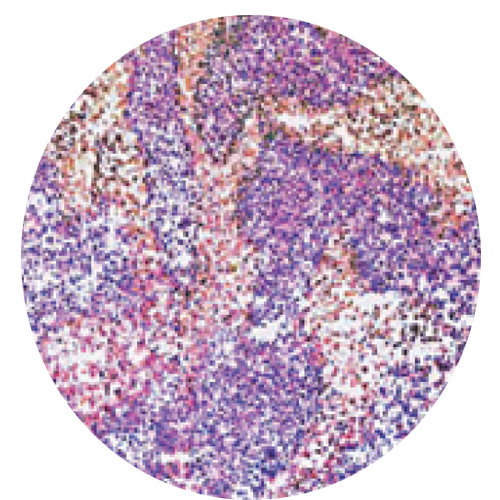Therapeutic Efficacy of Bifunctional siRNA Combining TGF-β1 Silencing with RIG-I Activation in Pancreatic Cancer
21-Jan-2013
Cancer Research, 2013, doi: 10.1158/0008-5472.CAN-11-3850, published on 21.01.2013
Cancer Research, online article
Cancer Research, online article
Deregulated TGF-β signaling in pancreatic cancer promotes tumor growth, invasion, metastasis, and a potent immunosuppressive network. A strategy for disrupting this tumor-promoting pathway is silencing TGF-β by siRNA. By introducing a triphosphate group at the 5′ end of siRNA (ppp-siRNA), gene silencing can be combined with immune activation via the cytosolic helicase retinoic acid-inducible gene I (RIG-I), a ubiquitously expressed receptor recognizing viral RNA. We validated RIG-I as a therapeutic target by showing that activation of RIG-I in pancreatic carcinoma cells induced IRF-3 phosphorylation, production of type I IFN, the chemokine CXCL10, as well as caspase-9–mediated tumor cell apoptosis. Next, we generated a bifunctional ppp-siRNA that combines RIG-I activation with gene silencing of TGF-β1 (ppp-TGF-β) and studied its therapeutic efficacy in the orthotopic Panc02 mouse model of pancreatic cancer. Intravenous injection of ppp-TGF-β reduced systemic and tumor-associated TGF-β levels. In addition, it induced high levels of type I IFN and CXCL10 in serum and tumor tissue, systemic immune cell activation, and profound tumor cell apoptosis in vivo. Treatment of mice with established tumors with ppp-TGF-β significantly prolonged survival as compared with ppp-RNA or TGF-β siRNA alone. Furthermore, we observed the recruitment of activated CD8+ T cells to the tumor and a reduced frequency of CD11b+ Gr-1+ myeloid cells. Therapeutic efficacy was dependent on CD8+ T cells, whereas natural killer cells were dispensable. In conclusion, combing TGF-β gene silencing with RIG-I signaling confers potent antitumor efficacy against pancreatic cancer by breaking tumor-induced CD8+ T cell suppression.











